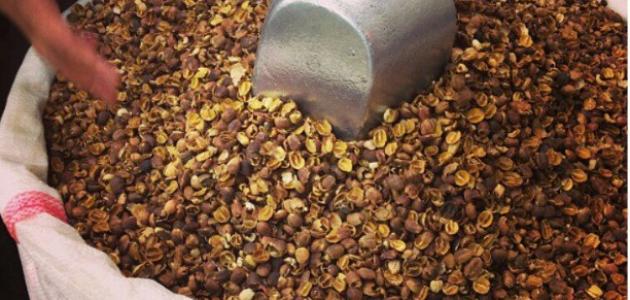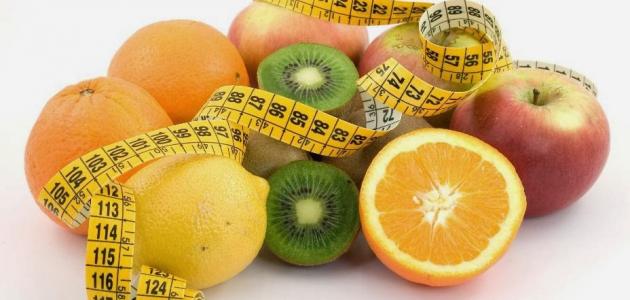Obesity and weight gain
Obesity is a disorder caused by an increased amount of fat in the body, and is associated with an increased risk of heart disease, diabetes, and high blood pressure, in addition to breathing disorders. The body mass index (in English: Body mass index) is considered one of the ways to diagnose it, and is calculated by dividing the weight by kilograms. On height in square meters, a person is considered obese if his body mass index is 30 or more. It is worth noting that there are many factors that contribute to obesity; Such as genes, unhealthy dietary pattern, age, lack of physical activity, etc. It should be noted that losing weight, even in a small way, may improve or prevent health problems associated with obesity. It is also possible to follow simple steps to prevent weight gain, which we will mention in this article. .
The best ways to slim down
There are many systems, nutritional supplements, and meal replacements that claim to reduce weight quickly, but most of them lack scientific evidence, as you must adhere to a healthy lifestyle to lose weight permanently, and eat fewer calories than the body burns, in addition to the importance of exercising. Pay attention to the amount of calories, and reduce the amount of carbohydrates in the diet. Below is a mention of the most effective ways to lose weight:
- Adding protein to the diet: The body burns calories when digesting and metabolizing ingested proteins, so eating a diet rich in protein enhances the metabolism by up to 80 to 100 calories per day. It also increases the feeling of fullness and reduces the feeling of hunger, as studies have shown that following This diet reduced calorie consumption by about 400 calories per day.
- Avoid processed foods: This is because they are high in added sugars, fats, and calories, and it is worth noting that these foods are designed to make you eat as much as possible, which causes addiction to processed food.
- Drink large amounts of water: Drinking half a liter of water increases the burning of calories an hour after eating a meal by 24 to 30%, and drinking water before meals may reduce calorie consumption, especially for middle-aged people and the elderly.
- Eating vegetables and fruits: As their content of water, nutrients, and fiber is high, these foods usually have few calories, so it is possible to eat many portions of them without consuming a lot of calories.
- Eat slowly: Eating too quickly can cause an increase in calories before the body realizes it is full, and chewing slowly may reduce calorie consumption and increase the production of hormones associated with weight loss.
- Get enough sleep: Studies have shown that people who are deprived of sleep are 55% more likely to develop obesity than those who get enough sleep. The reason for this is that sleep deprivation disrupts the daily fluctuations of appetite hormones, causing poor appetite regulation.
- Doing aerobic exercises: It is important to include exercise alongside the diet to lose or maintain weight, including: Running, jogging, cycling, and walking, which improve mental and physical health. These exercises have been shown to be effective in reducing abdominal fat in addition to reducing fat around the organs, which causes metabolic disorders. It is recommended to practice moderate-intensity exercise for at least 150 minutes every day. the week.
- Eat breakfast daily: Some people believe that skipping this meal is a good way to reduce calories, but these people usually consume more calories during the day, as studies have shown that people who eat breakfast have a lower body mass index than those who do not eat it.
- Closing the kitchen at night: It is preferable to set a time to stop eating, especially at night, in order to avoid eating snacks in the late hours of the night, or when watching television.
- Eat only when you feel hungry: You must eat a sufficient amount of food, especially when starting a weight loss diet, and avoid following a diet low in carbohydrates or fats, as this causes a decrease in insulin levels and significant weight loss without feeling full.
- Reduce consumption of dairy products: Milk products contain lactose, which slows weight loss. The protein in milk generates a significant insulin response, which may also cause slow weight loss. Abstaining from eating high-fat milk products can increase weight loss.
- Intermittent fasting: (in English: Intermittent fasting), which is a diet that includes regular fasting for a short period, and eating meals at shorter intervals during the day. Among the most famous methods of intermittent fasting are the following:
- Fasting alternately; Which consists of fasting day after day, and eating normally on iftar days. This food includes eating 25-30% of the body’s energy needs during the fasting period.
- Diet (2:5); So a person fasts two days out of 7 days, and consumes 500-600 calories on fasting days.
- method (8/16); This is done by fasting for 16 hours, and consuming food only during 8 hours, which is usually from noon to eight in the evening. One study conducted in this method showed that specifying the hours of eating reduced the consumption of calories and weight.
Foods that help lose weight
Different foods in the body pass through different metabolic pathways, which affect hunger, hormones, and the number of calories that the body burns. We mention below some foods that have been scientifically proven to be good for weight loss:
Read also:Slimming in a week- eggs.
- Leafy vegetables.
- Salmon.
- Vegetables from the cruciferous family.
- Chili pepper.
- Boiled potatoes.
- Legumes.
- Nuts.
- Whole grains.
- Fruits such as avocado and grapefruit.
- Chia seeds.
- Apple cider vinegar.
- the soup.
- Tuna.









